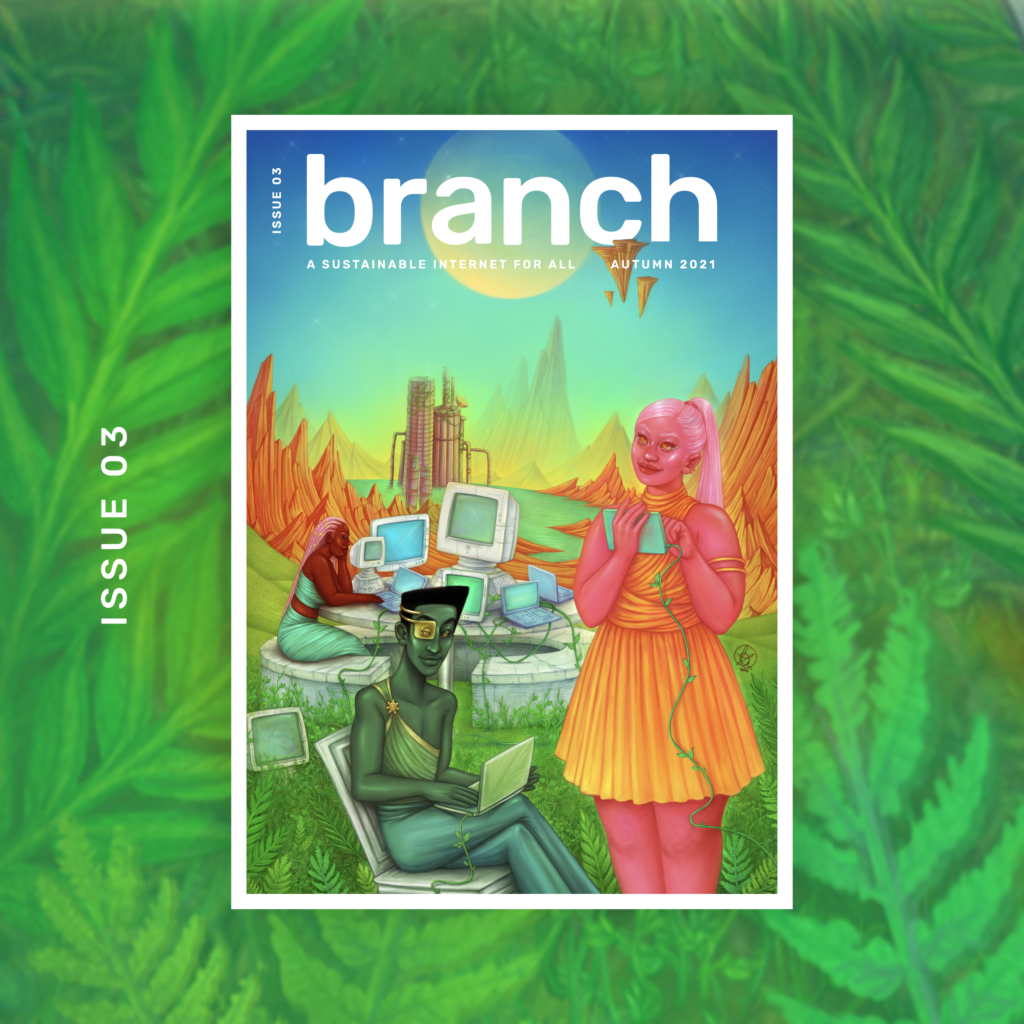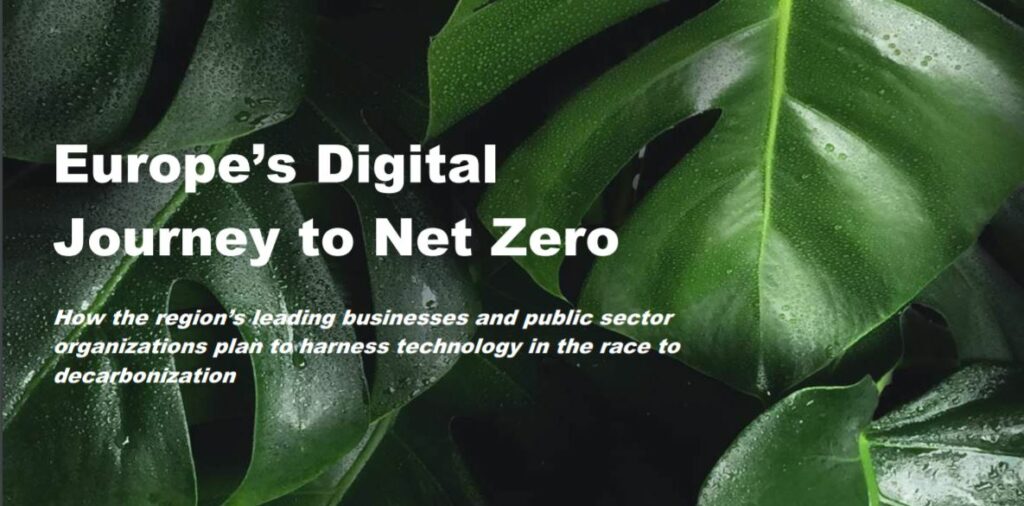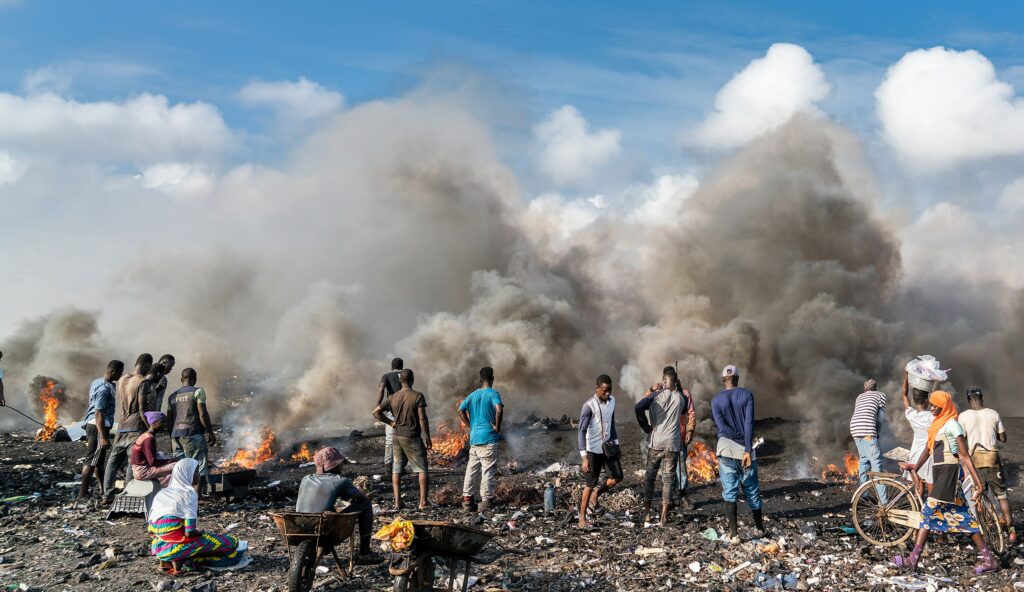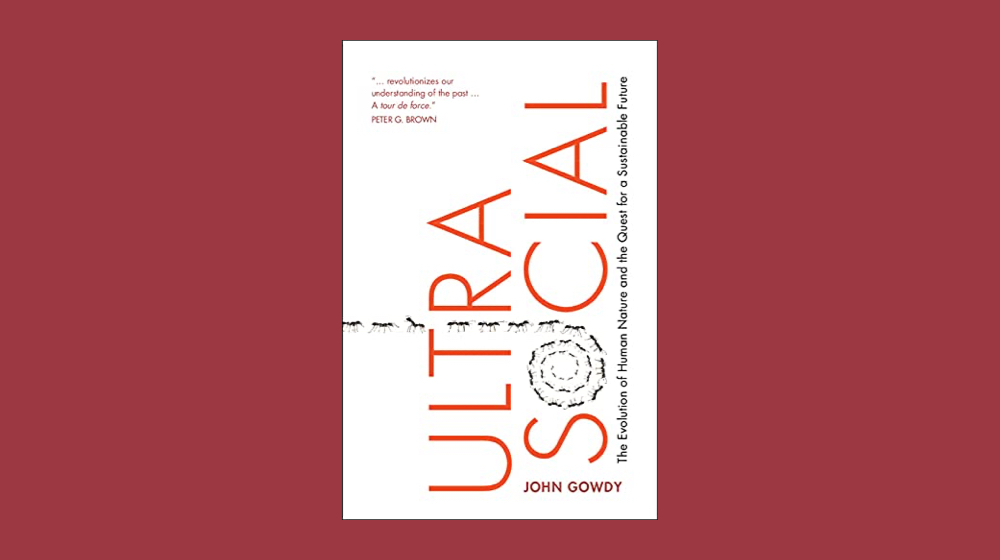|
“What should exist? What do we need that we don’t have?”
|
And just like that, 2021 is almost over! It’s at this time that we start the mad rush of last minute Christmas shopping and it’s so tempting to consume without thinking. Perhaps this is actually the perfect time to slow down and reflect on what we really need.
I recently came across this quote in James Clear’s newsletter, of Microsoft co-founder Paul Allen, saying:
“What should exist? To me, that’s the most exciting question imaginable. What do we need that we don’t have?”
When I read the first question, I initially thought he was encouraging a minimalist mindset, asking whether certain things really need to exist. But his second question highlights the opposite, that he is asking what more should exist. The answer is quite often, “nothing more is needed.” And yet, we keep creating and consuming more and more things. Maybe “less is more” would be a good thought with which to approach the new year.
On another note, if your dream for 2022 includes a new job working with a team who care about making the web better for people and planet, we’ve got new vacancies for a Digital Designer and a Project Manager so we’d love to hear from you.
This holiday season, I hope that we can all focus on enjoying each others’ presence over presents (cheesy pun intended!).
Until 2022,
– Tom Greenwood
|
|
|
Top picks from the green web
|

Branch magazine issue 3
|
Over a year has passed since the launch of ClimateAction.Tech‘s Branch magazine, and each issue is just as good, if not better, than the last. Published just twice a year, it’s well worth the wait and this season’s issue is no exception. The Autumn issue profiles those who are working towards making the future vision of a fossil-free internet a reality by 2030.
With a thoughtful introductory article from The Green Web Foundation‘s Chris Adams, on why we need a fossil-free internet and how we can get there, the main themes include tackling Adtech and climate misinformation, tech workers standing up for more ethical and environmentally friendly practices, and more on sustainable web craft and climate justice.
My lovely wife Vineeta also collaborated on this post with Trafi, Climatiq and Liberate Science about
Climate Action and Net-Zero Ambition: Best Practices for Small and Medium Enterprises?
|
|

Europe’s Digital Journey to Net Zero
|
Thomas Hoebermann shared this paper that I have been reading it with interest. Titled ‘Europe’s Digital Journey to Net Zero’, it explores how the region’s biggest businesses and public sector organisations view the challenge of Net Zero. I was surprised that 94% European business leaders feel that decarbonisation will be critical to the future survival of their business.
It’s fascinating that digital technology is viewed as the biggest short term opportunity for decarbonisation and although blockchain has mixed responses, the majority see it as a positive force. The biggest barrier seems to be the challenge of getting a handle on where emissions are coming from, with just 6% having a “single pane of glass” view of their emissions. We know from experience at Wholegrain how challenging this still is.
Despite the broadly optimistic tone of the report, the conclusion seems to be that there is more enthusiasm than real action, and I’m not sure if the faith that digital technology will solve the problems is well founded. No doubt it can help us understand our impact better and manage resources more efficiently, but ultimately we are going to need to make some meaningful changes in our culture, lifestyles and business models in ways that digital technology cannot do on its own.
|
|

Could refurbished IT equipment be better than new?
|
We recently worked with Aliter Networks (a fellow B Corp) on their new website and it was a great opportunity for us to learn more about the environmental issues and solutions associated with IT hardware. As web designers, we tend to live very much in the virtual world of software, but it’s the physical hardware of the web that makes it all possible and has a big proportion of the environmental impact.
Having had the chance to interview Tamil Karikalan from Aliter, I wrote this post highlighting the scale of the global e-waste problem and how refurbished IT equipment could be a key part of the solution. Perhaps most interesting to me was that refurbished equipment can actually be objectively better from a commercial perspective than new equipment, and yet its still such a small part of the market.
The best thing that we can do to reduce the impact of IT hardware, is to avoid buying new equipment where possible.
On another note, if you’d like to learn more about our website project with Aliter Networks, you can read our case study here or Aliter’s own write up.
|
|
|
|
|
"Hunter-gatherers had the original information economy"
|
John Gowdy
|
|

Ultrasocial by John Gowdy
|
I am a big believer that the best approach to solving any problem is to investigate the root causes, but how far should you dig to find the roots?
In Ultrasocial, John Gowdy has gone deep, exploring how humanities transition to an agricultural society 15,000 years ago transformed us into one of the Earth’s few ultrasocial species, acting not as groups of individuals but as one giant super organism. This parallels other agricultural species such as termites and some species of ants, but they have had millions of years to optimise their societies to work in balance with nature. We have not.
Gowdy proposes that the purpose of agriculture is to create a surplus of resources for a rainy day, but that as soon as humans invented it, they got stuck in the rebound effect of constantly expanding society and consuming the surplus. The chain reaction of this shift to a surplus generating superorganism cuts to the root of almost all of societies big challenges. War, taxes, capitalism, inequality, environmental destruction, crime, poverty, slavery, consumerism, corruption and even the dumbing down of society.
It goes so far as to explain how the growing intelligence of humans as a species through technological advancement has led to the reducing intelligence of humans as individuals. The recent rise of digital technology and AI will perhaps accelerate this exponentially. 🤯
Whether technology will help us solve our problems or push us deeper into the hole will depend on whether we use it to manage (and constrain) resources for social and environmental balance, or use them to accelerate the expansion of the economy until its final collapse.
|
|
|
|
|
Other news from the green web
|
-
Our friends at EcoPing are on a mission closely aligned with ours – their aim to to help digital agencies reduce the carbon emissions of their work, by tracking your website’s impact over time, showing you how to reduce digital emissions & boost performance. Check out their tool and, if you’re interested in trying it out, we have a special code for Curiously Green subscribers* to have your first month (on an agency plan) for free. Use the code CURIOUSLYGREEN to redeem this offer.
*We don’t do paid partnerships, I just think that this is a great tool.
-
Monitoring the impact of businesses is becoming increasingly important, but which framework or standards should you use? We recently launched The Impact Management Platform (IMP) website, a collaboration between all of the major standards providers to help businesses navigate the complexity of impact management and understand the options that are right for them.
-
We saw a huge shift from Apple this past month as they announced they will now sell iPhone parts so you can fix your own phone at home. A win for the right-to-repair movement, and we hope more companies will follow this example.
-
Designer Christopher Butler says there is no such thing as the ‘digital world’, and asks us how much we’re willing to ‘pay’ for the human cost of our digital experiences.
-
nachhaltiges-webdesign.jetzt is a fantastic resource (auf Deutsch) from subscriber Gerrit Schuster. Here’s the English translation.
-
Indeed Innovation shared a lovely write-up about the work we did with them to make their website more sustainable.
-
It was an honour to work with the UK’s first 100% renewable electricity supplier, Good Energy, to create their new website.
-
It’s great to see directories popping up, showcasing low carbon websites. We like these from Green The Web and Hey Low. And of course, you can always check out the low carbon sites in our portfolio!
|
|
|